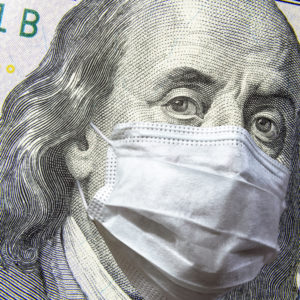Although the medical data tells us that men are more likely to die of the coronavirus, it also tells us something equally disturbing: Women, blacks, Native Americans and Latinos are suffering disproportionately from the pandemic’s medical, social and economic fallout.
The outcomes among communities of color, women and tribes have become a huge national concern. Recent economic numbers show a mass blow to women who are heads of household, on the frontlines as workers, and overall, as the U.S. economy has suffered its worst blow since the Great Depression.
According to a survey released in early May by the Minneapolis Federal Reserve, tribal citizens are disproportionately employed in the industries hit hardest by the COVID-19 pandemic.
Furloughs are already happening and expected to get worse, meaning tribes’ ability to offer critical health services to their citizens will be significantly impaired. Worse, a bill passed by the House of Representatives in May had $20 billion in Relief for Tribes alone. Unfortunately, the bill is stuck in the Senate and will likely die there.
Even before COVID-19 crisis hit, 40 percent of Americans and roughly the same for Latinos and tribal members had difficulty making ends meet. Today, many are not getting paychecks at all, such as restaurant workers, casino employees, bartenders, waiters, singers and minor league athletes.
Many Americans simply cannot afford an emergency expense of more than $400.
In just weeks, the nation’s unemployed number rose to 14.7 percent with more than 36 million citizens out of work and 20.5 million jobs lost from the once booming Obama-Trump economy. For context, during the Great Depression, 13 million Americans lost their jobs over a 36-month period.
We know that communities of color are always disproportionately hit when there is an economic downturn, or even when the economy is good.
That is where the often controversial but necessary short-term, small-dollar lending industry — a group of innovators that have figured out how to lend money to people when banks cannot — comes in.
This industry is often overlooked, if not vilified, and some misguided lawmakers on Capitol Hill seek to put them on the chopping block in the midst of this crisis, knowing full well that these products will be in extreme demand now more than ever.
Here is the truth: The original rescue “Families First” package passed in March provides a one-time direct deposit of $1,200 for individuals, $2,400 for couples and $3,000 for family of four. The payments phase out based on income levels and end for those earning more than $99,000 annually.
Families with children will receive an additional $500 per child. We all know that this is not enough as the virus at present has most of the country still in lockdown through June, and the infection and death rate (more than 100,000) in America at is by far the highest in the world.
This grim financial reality sets up an escalating battle in Congress.
Rep. Gregory Meeks of New York has introduced the “Payday and Predatory Loans Moratorium Act of 2020,” which seeks to eliminate the entire short-term lending industry by preventing collection of legal debts in excess of 36 percent APR. (In a giveaway to the mainstream financial services industry, Meeks’ bill exempts banks, even though APRs on bounced checks can exceed 900 percent per year.)
In May, House Financial Services Committee Chair Maxine Waters of California pressed the Federal Reserve and Treasury to exclude small-dollar lenders from participating in the Paycheck Protection Program.
Say what you will about short-term lenders, but I call them Financial First Responders because they have helped members of my family across the country in times of crisis. And as the bridge allowing many Americans to put food on the table, pay for medicine and keep the family well, they will be among our most unspoken heroes in this crisis.
Americans’ financial situation is going to get worse before it gets better, and unfortunately banks are not positioned to react to crises like COVID-19 quickly. And those who offer short-term, high-risk loans know that they are likely to have a high default rate given the current health crisis impacting the entire world.
The fact is people who do not have excellent credit, or at least fair credit, and a verifiable job do not often get approved for loans, credit cards or traditional capital.
In this moment what Congress needs to do is to protect and support this industry because they are the most easily accessible to regular Americans.
First, Congress and President Trump need to ensure any financial regulatory reforms are based in facts, not popular talking points. Credit-tightening measures have been demonstrated to harm those on the fringes of the banking system. Tightening access to credit right now will destroy families of color, immigrants and other disenfranchised communities.
Second, Congress should step in ensure Paycheck Protection Program loans are available to community lenders and financing providers with fewer than 500 employees, who are currently ineligible for PPP loans because of pre-existing restrictions in the Small Business Administration’s lending programs.
Finally, several states have recently passed credit-tightening measures, including California, Virginia and Ohio. State and federal lawmakers should work together to evaluate suspending implementation of these new rules. As Jamie Dimon, CEO of JP Morgan Chase said, “The Coronavirus is a wake-up call for a more inclusive economy.”
If we are going to follow his insightful advice, we need for Congress to work with, not against, the private sector’s Financial First Responders to help all Americans survive this historic devastating once in a lifetime crisis.

